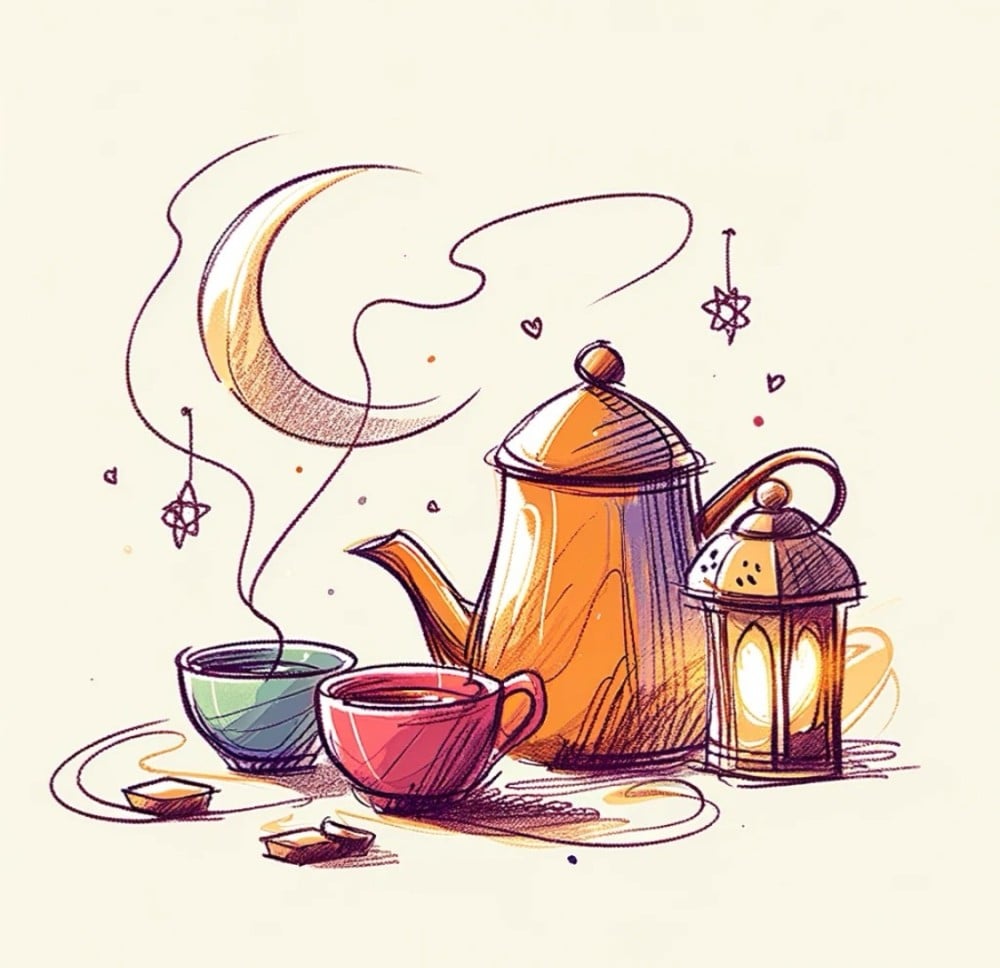"Tea Rituals in Ramadan: From Dawn Till Dusk"
Ramadan, the sacred month of fasting, reflection, and community for Muslims worldwide, brings about a unique rhythm to the daily life of the fasting individual. Among the many rituals and traditions that enrich this holy month, the consumption of tea plays a versatile role, offering moments of comfort, hydration, and reflection from Suhoor to Iftar and beyond.
The Significance of Tea During Ramadan
Tea is more than just a beverage; it's a medium of cultural expression, a companion in moments of solitude, and a means of fostering community. During Ramadan, its role is accentuated, serving to hydrate, energize, and comfort those observing the fast. Yet, choosing the right type of tea and understanding its effects on the body is crucial during this period.
Suhoor: Starting the Day Right
Suhoor, the pre-dawn meal, is essential for sustaining energy throughout the day of fasting. Since it’s advisable to return to sleep after Suhoor and avoid dehydration:
- Herbal Teas:
Chamomile or lavender teas can promote relaxation and aid in returning to sleep without affecting hydration levels.
- Decaffeinated Green Tea:
The decaffeinated tea offers the benefits of green tea without the stimulating effects of caffeine, making it a suitable choice for those who prefer a lighter, healthful start.
Iftar: Breaking the Fast with Hydration
Iftar is the eagerly awaited moment to break the fast at sunset, and hydration is key:
- Water and Fruit-Infused Iced Teas:
Start with water to rehydrate, followed by refreshing fruit-infused iced teas, such as mint, hibiscus, or lemon, to replenish fluids and awaken the senses gently.
- Digestive Aids:
Post-meal, warm teas like peppermint or ginger aid digestion and provide a soothing end to the Iftar meal.
Tea After Iftar: An Evening Ritual
The hours following Iftar offer an opportunity to enjoy a variety of teas, with considerations for individual caffeine sensitivities:
- Herbal Teas:
Continue with caffeine-free options to ensure hydration and relaxation throughout the evening.
- Decaffeinated Teas:
Enjoy the taste of traditional teas without the caffeine, ideal for those sensitive to its effects.
- Traditional Caffeinated Teas:
If preferred, consume these earlier in the evening to avoid sleep disruption.
Caffeine Considerations During Ramadan
Balancing caffeine intake during Ramadan is crucial due to its diuretic effect and potential to disrupt sleep patterns. Moderation is key, with a focus on hydration and choosing teas that align with one's body's needs at different times of the day.
Tailoring Tea Consumption
Selecting teas for Ramadan involves considering the body's hydration needs, the spiritual aspects of fasting, and the communal joys of sharing these moments. Here are some recommendations:
- For Suhoor:
Caffeine-free herbal teas for relaxation and hydration without sleep disruption.
- For Iftar:
Refreshing, hydrating iced teas to break the fast, followed by warm herbal teas to aid digestion.
- Evening and Night:
A mix of decaffeinated and herbal teas to support hydration, relaxation, and sleep.
Conclusion
Tea, in its many forms, can significantly enhance the Ramadan experience. It offers a means to hydrate, energize, and soothe the fasting body while providing moments of reflection, community, and joy. By choosing the right types of tea at the appropriate times, those observing Ramadan can nurture their physical well-being and spiritual growth, making the holy month a truly enriching journey.
May Allah help you to fast and pray and accept your obedience.


